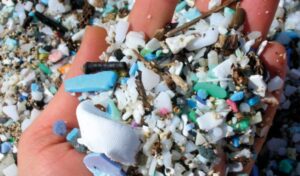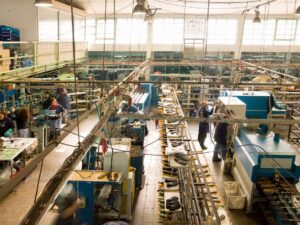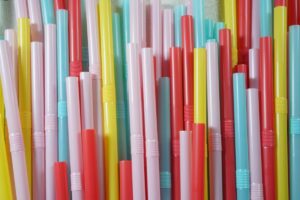- Take Action
- Policy
- Circular Economy
- National
Edmonton’s proposed single-use plastics ban pegged for 2023 includes fees for reusable bags, disposable cups
A ban on plastic shopping bags, straws and styrofoam as well as fees for disposable cups are part of Edmonton’s proposed plan to reduce single-use items starting in 2023.
The plan to significantly reduce the use of single-use items and rely on reusable options is part of the city’s strategy to divert 90 per cent of waste from landfills within the next 25 years. In a draft plan published online , the city is currently recommending a ban on many single-use plastics, including shopping bags and straws, as well as further action on other single-use items by banning the use of styrofoam cups and containers.
A fee is also being proposed for the purchase of some items to encourage residents to adapt to reusable options instead. A minimum mandatory fee of $0.15 for paper bags and $1 to purchase reusable bags is on the table as well as a fee of $0.25 for disposable cups. Instead, businesses will be encouraged to provide reusable cups as well as accept customer-supplied cups.
Revenues from fees can be used by businesses to help cover the costs of complying with the rules, including purchasing reusable dishes, dishwashers, as well as providing training. A reduction in single-use items is necessary to lessen the impact on the environment, the city said.
An estimated 450 million single-use materials are thrown out every year in Edmonton, equivalent to 1.2 million every day, including 92 million shopping bags and 91 million disposable cups.
“There are environmental, social and economic impacts from the production, consumption and disposal of single-use items, such as greenhouse gas emissions, consumption of natural resources and water pollution,” the city said in its proposal. “Single-use items are also frequently littered and when released into the environment they are unsightly, damage habitat and harm wildlife.”
A 2019 litter audit from the city found that 42 per cent of all large litter items were related to disposable single-use items, with the most littered materials being napkins, straws and cups.
Waste Free Edmonton co-founder Sean Stepchuk applauded the city’s recommendations but said it could even go further by implementing a fee for takeaway containers, encouraging people to bring their own.
“The biggest thing is to become less reliant on disposable options and instead use reusable options moving forward,” he said in an interview with Postmedia. “A fee is a little more flexible than a ban, it has to be high enough to impact individuals’ behaviours but still give them the option of the disposable item if they need, for example if someone forgets their coffee cup on a certain day they have the option of paying.
Edmonton’s strategy comes as the federal government is looking to implement a rule pertaining specifically to single-use plastics, with the city’s plan going further by including other single-use materials.
Enforcement strategies are still being determined, but they would revolve around ensuring businesses are complying with the ban and the proposed surcharges. The city said it intends to focus on education and support first before issuing any fines.
With the recommendations released publicly, waste strategy director Jodi Goebel said the city is continuing conversations with businesses and event organizers to discuss the proposals and will bring the final recommendations forward to council’s utility committee early next spring. Residents will have the chance to speak at a public hearing next spring and when a bylaw is approved, the adoption period will be one year later — anticipated for late 2023 — to give the public time to transition.



